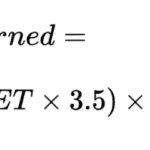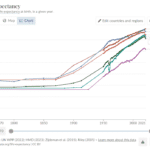How Much Caffeine Is in Coffee? (And What to Watch For)
Caffeine is a natural stimulant found in coffee, tea, chocolate, and various energy drinks. While it’s known for boosting alertness and concentration, it’s essential to be mindful of how much caffeine you consume daily. This article explores the recommended caffeine intake limits, the effects of excessive consumption, and how to use a caffeine intake calculator to monitor your daily intake. Incorporating insights from recent research and practical advice, we’ll help you make informed decisions about your caffeine consumption.
Coffee Intake Calculator
Common Questions about Caffeine Limits –
What is Caffeine?
Caffeine is a naturally occurring compound found in over 60 plant species, including coffee beans, tea leaves, and cacao pods. It works by stimulating the central nervous system, leading to increased alertness and wakefulness. Caffeine is absorbed quickly and enters the bloodstream within 15 to 45 minutes after consumption. Its effects can last for several hours, depending on individual sensitivity and metabolism.
How Does Caffeine Work?
Caffeine primarily works by blocking the effects of adenosine, a neurotransmitter that promotes relaxation and sleepiness. By inhibiting adenosine, caffeine increases the release of dopamine and norepinephrine, which enhances alertness, mood, and cognitive function. It also stimulates the production of adrenaline, leading to increased heart rate and blood pressure.

Caffeine? Done. Next up—sugar, protein, and everything your body craves. Track it all with Recipians.
You’ve just uncovered the truth about caffeine—why stop there? With Recipians, you can track not just your coffee intake, but everything that fuels your body. From sugar spikes to protein power, we help you understand your meals, improve your habits, and stay on top of your health—all through delicious, real food. Whether you’re meal-planning, calorie-tracking, or just curious about what’s on your plate, Recipians is your smart, tasty solution.
Recommended Caffeine Intake Limits
The recommended caffeine intake varies based on factors such as age, gender, and individual sensitivity. According to the U.S. Food and Drug Administration (FDA), most healthy adults can safely consume up to 400 milligrams of caffeine per day, equivalent to about four 8-ounce cups of brewed coffee.
- Pregnant and Breastfeeding Women: The American College of Obstetricians and Gynecologists (ACOG) recommends limiting caffeine intake to 200 milligrams per day during pregnancy and breastfeeding to reduce the risk of complications such as miscarriage and low birth weight.
- Children and Adolescents: The American Academy of Pediatrics advises against caffeine consumption for children under 12. For adolescents aged 12 to 18, caffeine intake should not exceed 100 milligrams per day.
💡 Keep in mind: individual tolerance varies. What energizes one person might cause heart palpitations in another.

Caffeine Content by Beverage Type
☕ Coffee & Espresso: Caffeine Breakdown
| Beverage | Serving Size | Avg Caffeine (mg) |
|---|---|---|
| Brewed Coffee (drip) | 8 oz (240 ml) | 95–200 mg |
| Espresso Shot | 1 oz (30 ml) | 63–75 mg |
| Double Espresso | 2 oz (60 ml) | 125–150 mg |
| Americano (2 shots + water) | 12 oz (355 ml) | 130–150 mg |
| Latte (1 shot) | 12 oz (355 ml) | 63–75 mg |
| Cappuccino (1 shot) | 6 oz (180 ml) | 63–75 mg |
| Nespresso Capsule (Original) | 1 capsule | 55–125 mg |
| Nespresso Vertuo | 1 capsule | 65–200 mg |
| Decaf Coffee | 8 oz (240 ml) | 2–15 mg |
🔍 How much caffeine is in a shot of espresso?
Looking to find how much caffeine in espresso? A single shot of espresso contains around 63 to 75 mg of caffeine depending on the roast and coffee bean.
☕ Caffeine in a Latte vs Americano?
- Latte (1 espresso shot + milk): ~63 mg
- Americano (2 shots + water): ~130 mg
🍵 Tea & Matcha: Surprising Sources of Caffeine
| Beverage | Serving Size | Avg Caffeine (mg) |
|---|---|---|
| Black Tea | 8 oz | 40–70 mg |
| Green Tea | 8 oz | 25–45 mg |
| Matcha Tea (1 tsp powder) | 8 oz | 60–70 mg |
| Chai Tea Latte (Starbucks) | 12 oz | 70 mg |
| Sweet Tea (bottled) | 16 oz | 30–50 mg |
| Herbal Tea | 8 oz | 0–5 mg |
🍵 Does matcha have more caffeine than coffee?
Matcha has less caffeine than regular coffee, but more than green tea. It’s also richer in L-theanine, which slows caffeine absorption and creates a calmer alertness.
🧋 Does chai tea latte have caffeine?
Yes, it does! Traditional chai (black tea + spices) has about 50–70 mg per serving depending on the preparation.
🥤 Sodas & Energy Drinks: Hidden Caffeine Sources
| Drink | Serving Size | Avg Caffeine (mg) |
|---|---|---|
| Coca-Cola (bottle) | 20 oz | 57 mg |
| Diet Coke (can) | 12 oz | 46 mg |
| Mountain Dew (can) | 12 oz | 54 mg |
| Dr Pepper (can) | 12 oz | 41 mg |
| Red Bull | 8.4 oz | 80 mg |
| Monster Energy | 16 oz | 160 mg |
🥤 How many ml of caffeine in Dr Pepper?
A 12 oz can of Dr Pepper contains about 41 mg of caffeine, which is roughly 1.4 ml of pure caffeine.
🧃 Does sweet tea have caffeine?
Yes, especially if it’s made with black tea. Sweet tea can contain 30–50 mg of caffeine per 16 oz serving.
Effects of Excessive Caffeine Consumption
Short Term –
While moderate caffeine consumption can provide several benefits, excessive intake can lead to adverse effects, including:
- Insomnia: Disrupting sleep patterns and causing difficulty falling asleep.
- Nervousness: Leading to increased anxiety and jitteriness.
- Rapid Heart Rate: Causing palpitations and increased blood pressure.
- Stomach Upset: Leading to nausea and gastrointestinal discomfort.
Long Term –
Chronic excessive caffeine consumption can contribute to more severe health issues, such as:
- Dependence: Leading to withdrawal symptoms like headaches, irritability, and fatigue when caffeine intake is reduced or stopped.
- Increased Risk of Osteoporosis: High caffeine intake can interfere with calcium absorption, potentially weakening bones over time.
- Potential Heart Problems: Excessive caffeine consumption can increase the risk of cardiovascular issues, especially in individuals with pre-existing heart conditions.
Conclusion
Caffeine can be your best friend or your worst enemy—depending on how much you consume. Whether you’re pulling all-nighters or just enjoying your morning ritual, knowing how much caffeine is in your favorite drinks is key to staying energized and healthy.
From espresso shots to chai lattes and soft drinks, caffeine is everywhere. But thanks to Recipians, you can stay informed, in control, and enjoy every cup without overdoing it.





